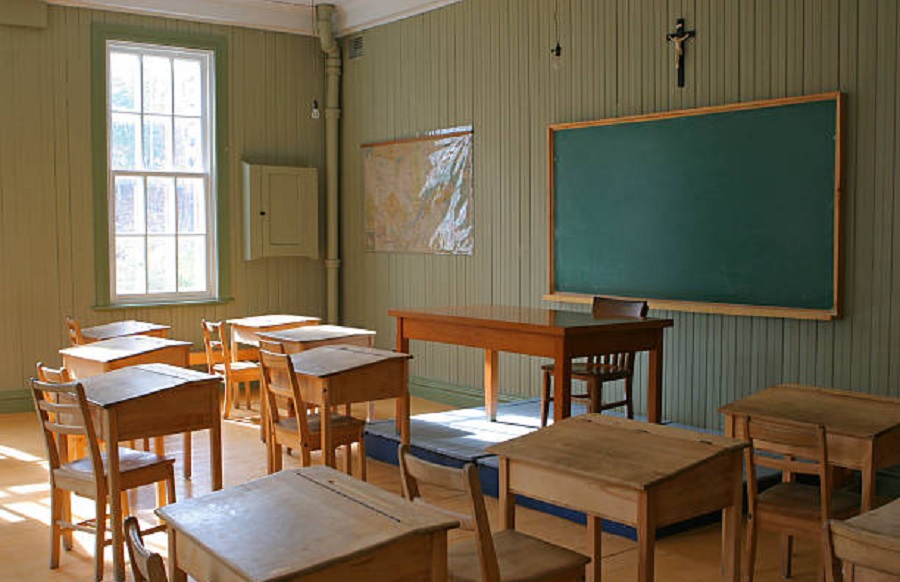RIO DE JANEIRO, BRAZIL – The average number of schooling years in Paraguay is only 9.5, according to data released yesterday by the National Institute of Statistics (INE) within the framework of International Education Day, celebrated every January 24.
The new figures are based on the 2020 Permanent Household Survey.

INE director Iván Ojeda said that “in addition to the fact that Paraguayans study only 9.5 years, illiteracy stands at 5.5% among the country’s population.”
The official also stated that the pandemic affected families in different ways throughout the country. According to statistics, almost half of youths from the age of 15 who do not attend school are excluded for economic reasons.
Family is the second most common reason for expulsion from the school system. Some 16.6% of youths who do not attend school do not do so for this motive.
The gaps between sectors are also reflected in these official data. In the urban sector, the average number of schooling years is 10.7. Meanwhile, in rural areas it is only 7.7 years.
During the first year of the pandemic, INE surveyed families on the population aged 15 to 19 years who do not attend any educational institution.
From the responses, is was found that 212,000 people in this age group were not attending school.
URGENCY
PhD in education Sofía Scheid lamented the persisting issues, which increased even more with the Covid-19 pandemic. She mentioned the urgent issues to be addressed, such as reducing the technological gap and working to lower the high rate of educational exclusion. She recalled that according to the latest national and international studies, 6 out of 10 youths fail to complete high school.
In other words, “out of every 1,000, 600 do not finish it,” the expert said, one of the problems that the Ministry of Education and Science (MEC) fails to address. “Education is not structured in contents, it is structured in skills. The MEC is concerned with recovering content, it is not concerned with skills.”
Paraguay invests just 3.4% of GDP in the sector, the lowest percentage in the whole region.
“On average, US$630 is what is invested per student, that cannot get us anywhere with the problems we have,” she said. “The MEC is concerned with recovering content, it is not concerned with skills.”
FURTHER SUGGESTIONS
Education researcher Rudi Elías said that the investment for school age children and youths is still insufficient to address this crisis. In addition, addressing social problems that increase the gaps is also crucial.
“These data reflect what has been pointed out for years. Rural areas and indigenous peoples are always the hardest hit and least attended,” he said.
The analyst said that economic factors, languages and gender are the most common causes of school exclusion.
VIRTUALLY THE LOWEST IN THE REGION
The average number of schooling years in Paraguay is virtually the lowest in MERCOSUR, ahead only of Brazil, which has less than 9 schooling years.
The Argentine average is approximately 11.20 years, according to Rudi Elías.
This is based on data published by the Latin American Educational Trends Information System (SITEAL).
“Brazil has many social problems that persist such as racism, that exclude many sectors of its population,” said the researcher.
In the case of Paraguay, the educational aspect is also reflected in the social aspect, which adds to the lack of measures to reduce these indices.
PANDEMIC
In commemorating International Education Day, UNICEF noted that the closure of schools due to Covid-19 left at least 70% of 10-year-old children unable to read or understand simple texts. The phenomenon occurs mainly in developing or low-income countries.
Before the pandemic, this rate stood at 53% in this age group.
“In South Africa, it is estimated that between 400,000 and 500,000 students dropped out of school completely between March 2020 and July 2021,” reads the multinational organization’s statement.
Official data from the MEC in the pandemic states that there are 243,000 young people of school age not attending school at all.
An increase in these rates was seen as a result of Covid-19 last year. Although measures to mitigate this impact have not yet been announced, the Ministry assured “it will work with teachers” to identify the excluded students.
MENTAL HEALTH
UNICEF also focused on the growing levels of anxiety and depression linked to the pandemic since early 2020. More than 370 million children were deprived of school meals.

